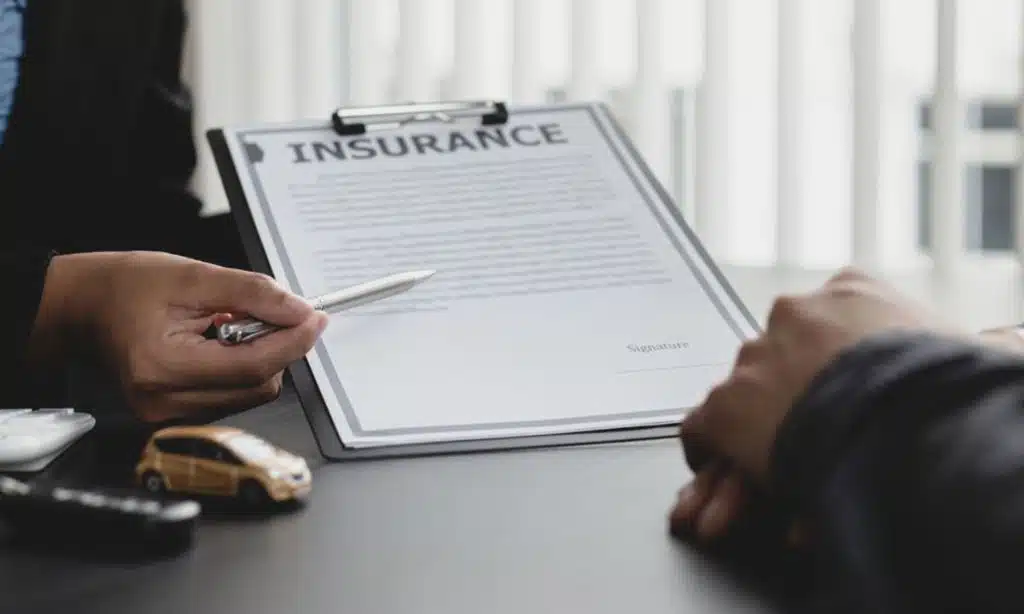When involved in an accident, navigating the insurance claims process can be daunting and overwhelming. Dealing with insurance companies, whether it’s your own or the other party’s, requires a strategic approach to ensure that you receive fair compensation for your damages and injuries.
From the moment the accident occurs, the steps you take can significantly impact the outcome of your claim.
This guide provides crucial tips for effectively handling insurance companies after an accident, helping you protect your rights and achieve the best possible resolution.
1. Immediate Steps After an Accident
Your actions immediately following an accident can significantly impact your ability to file a successful insurance claim. Here are the crucial steps to take:
a) Ensure Safety First:
Your primary concern should be the safety and well-being of everyone involved. Move to a safe area away from traffic or further danger if possible. Turn on your hazard lights to alert other drivers. If you’re on a busy road or highway, stay in your vehicle with your seatbelt fastened until help arrives unless it’s unsafe.
b) Call Emergency Services:
Even if injuries seem minor, it’s essential to call 911. Police reports can be crucial for insurance claims, and immediate medical attention can prevent minor injuries from becoming more serious. When speaking with the 911 operator, provide transparent information about your location, the number of people involved, and any visible injuries or hazards.
c) Document the Scene If it’s safe to do so, take photos and videos of the accident scene, including:
- Damage to all vehicles or property involved
- The overall scene, including road conditions and weather
- Any visible injuries
- Traffic signs or signals in the area
- Skid marks on the road
- License plates of all vehicles involved
Use your smartphone’s time and date stamp feature if available, as this can provide valuable information about when the accident occurred.
d) Gather Information Collect the following information from all parties involved:
- Names and contact details
- Insurance company names and policy numbers
- Vehicle information (make, model, license plate number)
- Witness contact information, if applicable
- Badge number of responding police officers
Use your phone to take pictures of insurance cards and driver’s licenses to ensure accuracy.
e) Don’t Admit Fault:
Avoid discussing who was at fault, even if you think you might have been responsible. Fault determination is a complex process that should be left to insurance companies and legal professionals. Stick to exchanging necessary information and avoid making statements like “I’m sorry” or “It was my fault,” as these can be used against you later.
2. Notify Your Insurance Company
Once you’re safe and have gathered initial information, it’s time to contact your insurance company. Here’s how to approach this step:
a) Report Promptly:
Most insurance policies require you to report accidents promptly. Failing to do so could jeopardize your claim. Check your policy for specific timeframes, but aim to report within 24-48 hours. Many insurance companies now offer mobile apps that allow you to start the claims process immediately, often with the ability to upload photos directly from the accident scene.
b) Stick to the Facts:
When reporting the accident, provide a factual account of what happened. Avoid speculation or admitting fault. Use the notes and photos you took at the scene to ensure accuracy. If you’re unsure about something, it’s okay to say, “I’m not certain about that detail.”
c) Ask About Coverage Inquire about what your policy covers, including:
- Medical expenses
- Car repairs
- Rental car coverage
- Towing services
- Personal injury protection benefits
- Uninsured/underinsured motorist coverage
Make sure you understand your deductible and how it applies to your situation. Ask about the timeline for the claims process and what you can expect next.
d) Get a Claim Number:
Ensure a claim number and the adjuster’s name are assigned to your case. This information will be crucial for all future communications about your claim.
e) Understand the Claims Process:
Ask your insurance representative to explain the process, including expected timelines and any required documentation. Some questions to ask include:
- How long will the claims process take?
- Will I need to obtain repair estimates?
- How will my deductible be applied?
- Will this affect my premiums?
- What happens if the other party doesn’t have insurance?
3. Understand Your Policy
A thorough understanding of your insurance policy is crucial when dealing with insurance companies after an accident. Here’s what you need to know:
a) Review Your Coverage Carefully read through your policy to understand:
- Types of coverage (liability, collision, comprehensive, etc.)
- Coverage limits
- Deductibles
- Exclusions
Pay special attention to:
- Personal Injury Protection (PIP) or Medical Payments coverage
- Uninsured/Underinsured Motorist coverage
- Rental car coverage
- Towing and labor coverage
Don’t hesitate to call your insurance agent to clarify any points you don’t understand.
b) Know Your Rights:
Familiarize yourself with your rights as a policyholder. These may include:
- The right to choose your repair shop
- The right to appeal claim decisions
- The right to hire an attorney
- The right to receive a rental car while yours is being repaired (if you have this coverage)
- The right to receive a detailed explanation of any claim denial
Many states have a “Consumer Bill of Rights” for insurance. Check your state’s Department of Insurance website for specific information.
c) Understand Fault Laws:
Different states have different laws regarding accident faults. Some states are “no-fault” states, while others use comparative or contributory negligence rules. Understanding these can help you navigate the claims process more effectively.
- No-fault states: In these states, each person’s insurance covers their medical expenses and lost wages, regardless of who caused the accident.
- Comparative negligence states: In these states, fault can be shared between parties, and your percentage of fault reduces compensation.
- Contributory negligence states: In these few states if you’re found to be even slightly at fault, you may be unable to recover damages from the other party.
d) Be Aware of Time Limits:
Most policies have time limits for filing claims and taking legal action. Ensure you know these deadlines to avoid losing your right to compensation. Standard time limits include:
- Reporting the accident to your insurance company (often within 24-72 hours)
- Filing a personal injury lawsuit (often 1-2 years, but varies by state)
- Filing a property damage lawsuit (often 2-3 years, but varies by state)
According to the Insurance Information Institute, about 13% of drivers are uninsured. Knowing your policy’s uninsured motorist coverage can be crucial if you’re involved in an accident with an uninsured driver.
4. Dealing with Claims Adjusters
Claims adjusters play a crucial role in the insurance claim process. Here are some tips for interacting with them effectively:
a) Be Prepared Before speaking with a claims adjuster:
- Review the accident details
- Have all relevant documents ready (police report, medical records, repair estimates)
- Know your policy coverage
- Prepare a written statement about the accident
- Have a rough idea of the compensation you’re seeking
b) Maintain a Professional Tone:
Stay calm and professional in all interactions, even if you disagree with the adjuster’s assessment. Remember, adjusters handle numerous claims daily, and a respectful, organized approach can help your claim proceed more smoothly.
c) Keep Detailed Records:
Document all communications with the claims adjuster, including:
- Dates and times of conversations
- Names of people you spoke with
- Summary of what was discussed
- Any promises or agreements made
Consider following up essential conversations with an email summarizing the key points discussed.
d) Be Cautious About Recorded Statements:
Consider consulting with an attorney first if asked to provide a recorded statement. You have the right to decline or postpone giving a recorded statement. If you do provide one:
- Stick to the facts
- Don’t speculate or guess
- If you’re unsure about something, say so
- Don’t volunteer information that isn’t asked for
e) Don’t Rush to Settle:
Before agreeing to a settlement, fully understand the extent of damages and injuries. Initial offers are often lower than what you may be entitled to. Remember:
- Some injuries may not be immediately apparent
- You may be entitled to compensation for future medical treatment
- Lost wages and pain and suffering should be considered
f) Get Everything in Writing:
Request written confirmation of any agreements or promises made by the claims adjuster. This includes:
- Settlement offers
- Coverage determinations
- Promises to pay for specific treatments or repairs
g) Understand the Adjuster’s Role:
Remember that the claims adjuster works for the insurance company, not for you. Their job is to settle claims quickly and cost-effectively for their employer. While many adjusters strive to be fair, it’s important to advocate for yourself and ensure you receive proper compensation.
5. Documenting Damages and Injuries
Proper documentation is critical to ensuring you receive fair compensation. Here’s how to document damages and injuries effectively:
a) Vehicle Damage For car accidents:
- Take multiple photos of all damage from various angles
- Get a professional estimate for repairs from a reputable shop
- If your car is totaled, research its market value before the accident
- Keep receipts for any repairs or rentals
- Document any personal property damaged in the accident (e.g., laptops, phones)
b) Property Damage:
For accidents involving property damage:
- Photograph all damaged items
- Create an inventory of damaged property, including age and estimated value
- Obtain repair or replacement estimates from professionals
- Keep receipts for any emergency repairs or replacements
c) Medical Injuries:
For personal injuries:
- Seek medical attention promptly, even for seemingly minor injuries
- Keep a detailed record of all medical visits, treatments, and medications
- Ask your healthcare providers for copies of all medical records related to your injuries
- Document how injuries impact your daily life and work (e.g., inability to perform specific tasks)
- Take photos of visible injuries as they heal
- Keep a pain journal documenting your recovery process
d) Lost Wages:
If your injuries cause you to miss work
- Keep track of all missed workdays
- Document any lost opportunities or benefits
- Get a statement from your employer confirming lost wages
- If self-employed, document lost contracts or business opportunities
e) Additional Expenses:
Keep receipts for any out-of-pocket expenses related to the accident, such as:
- Transportation costs to medical appointments
- Home care services
- Medical equipment
- Medication costs
- Costs for help with daily tasks you can’t perform due to injury
f) Long-term or Permanent Injuries of severe injuries with long-term impacts:
- Consult with medical experts about future treatment needs
- Consider the long-term effects on your earning capacity
- Document any necessary lifestyle changes or home modifications
g) Emotional Distress:
While more challenging to quantify, emotional distress can be a significant factor in some cases:
- Keep a journal documenting your mental state and any anxiety or depression
- Seek help from a mental health professional if needed
- Document any changes in sleep patterns or social activities
6. Negotiating with Insurance Companies
Negotiating with insurance companies can be challenging, but ensuring fair compensation is often necessary. Here are some strategies:
a) Don’t Accept the First Offer:
Initial settlement offers are typically lower than you may be entitled to. It’s usually best to negotiate for a higher amount. The first offer is often a negotiation starting point, not the final one.
b) Know Your Claim’s Worth:
Research similar cases and consult with professionals to understand the potential value of your claim. Consider:
- All current and future medical expenses
- Lost wages and potential impact on future earning capacity
- Pain and suffering
- Property damage
- Incidental costs related to the accident
c) Present Strong Evidence:
Use your documentation to support your claim. Provide:
- Detailed medical records and bills
- Repair estimates or receipts
- Proof of lost wages
- Expert opinions, if applicable (e.g., medical professionals, accident reconstruction experts)
- Photos and videos of damages and injuries
d) Be Patient:
Negotiations can take time. Don’t feel pressured to accept an offer quickly if you believe it’s insufficient. Insurance companies may use delay tactics, hoping you’ll receive a lower offer out of frustration or financial need.
e) Use a Demand Letter:
Consider sending a formal demand letter outlining your injuries, damages, and the compensation you’re seeking. A well-crafted demand letter should include:
- A detailed account of the accident
- A comprehensive list of your injuries and treatments
- An itemized list of all expenses and losses
- The total amount you’re demanding in compensation
- A deadline for response (usually 30 days)
f) Consider future costs and potential medical expenses or long-term impacts when negotiating. This might include:
- Ongoing physical therapy
- Future surgeries
- Long-term care needs
- Loss of future earning capacity
g) Be Willing to Compromise:
While advocating for fair compensation is essential, be prepared to find a middle ground. Consider the strengths and weaknesses of your case, and be realistic about what you can expect.
h) Get Help if Needed:
If negotiations are not progressing or you feel overwhelmed, consider seeking help from an attorney experienced in personal injury law.
i) Understand the Impact of Comparative Negligence:
If you were partially at fault for the accident, understand how this might affect your settlement. In many states, your compensation may be reduced by your percentage of fault.
j) Don’t Be Afraid to Walk Away:
If the insurance company is not offering a fair settlement, be prepared to take your case to court. Sometimes, the threat of legal action can motivate an insurer to increase their offer.
7. Understanding Insurance Company Tactics
Insurance companies are businesses focused on minimizing payouts. Being aware of common tactics can help you navigate the process more effectively:
a) Delayed Response:
Some insurers may delay the process, hoping you’ll accept a lower offer out of frustration or financial need. They might:
- Take a long time to return calls or emails
- Request unnecessary documentation
- Drag out investigations
How to counter: Stay persistent, document all communications, and consider seeking legal help if delays become excessive.
b) Disputing Medical Treatment:
Insurers might question the necessity of specific medical treatments to reduce the claim amount. They may:
- Argue that some treatments weren’t necessary
- The claim that injuries were pre-existing
- Suggest that you received excessive treatment
How to counter: Get detailed doctor notes explaining why treatments were necessary. Consider getting a second medical opinion if needed.
c) Requesting Unnecessary Information:
Be cautious about providing information not directly related to your claim. Insurers might:
- Ask for an extensive medical history unrelated to your current injuries
- Request access to all your social media accounts
- Ask for statements from friends or family members
How to counter: Only provide information directly relevant to your claim. Consult with an attorney if you’re unsure about a request.
d) Pressuring for Quick Settlements:
Be wary of pressure to settle quickly before fully understanding the extent of your damages or injuries. Insurers might:
- Offer a “one-time only” deal
- Suggests that delays could result in no payment at all
- Imply that you don’t need time to review settlement offers
How to counter: Take your time to understand your injuries and damages fully. Don’t sign anything until you’re sure you know all the terms.
e) Misrepresenting Policy Terms:
Always verify policy information independently rather than relying solely on the adjuster’s interpretation. Insurers might:
- Claim certain damages aren’t covered when they are
- Understate policy limits
- Misrepresent deadlines for filing claims
How to counter: Carefully review your policy yourself. Consider having an attorney or independent insurance expert review your policy.
f) Surveillance In some cases:
insurance companies may conduct surveillance to verify injury claims. They might:
- Monitor your social media activity
- Hire private investigators to observe you
- Use drones or other technology to gather footage
How to counter: Be aware of your public activities and social media posts. Always be honest about your injuries and limitations.
g) Using Your Words Against You:
Be cautious about what you say to adjusters, as your statements can be used to minimize your claim. They might:
- Ask leading questions designed to elicit responses that hurt your claim
- Take statements out of context
- Twist casual comments into admissions of fault
How to counter: Stick to the facts when discussing the accident. Consider having all communications in writing or having an attorney present for discussions.
8. When to Seek Legal Help
While many insurance claims can be handled without legal assistance, there are situations where consulting an attorney may be beneficial:
a) Serious Injuries:
If you’ve suffered severe injuries that may have long-term impacts, an attorney can help ensure you receive adequate compensation. This might include:
- Injuries requiring surgery
- Injuries resulting in permanent disability
- Traumatic brain injuries
- Spinal cord injuries
b) Disputed Liability:
When fault for the accident is unclear or disputed, legal expertise can be crucial. An attorney can:
- Gather and preserve evidence
- Interview witnesses
- Work with accident reconstruction experts
- Navigate complex liability laws
c) Bad Faith Insurance Practices:
An attorney can protect your rights if you suspect the insurance company is acting in bad faith. Signs of bad faith might include:
- Unreasonable delays in processing your claim
- Denying a claim without giving a reason
- Offering a settlement far below what’s reasonable
- Misrepresenting policy terms
d) Complex Cases involving multiple parties or complicated circumstances may require legal guidance.
This might include:
- Accidents involving commercial vehicles
- Accidents with government vehicles or on government property
- Cases involving defective products
e) Significant Financial Losses:
For claims involving substantial financial losses, legal representation can help maximize your compensation. This might include cases with:
- High medical bills
- Significant lost wages
- Extensive property damage
f) Denied Claims:
If your claim has been unfairly denied, an attorney can help appeal the decision. They can:
- Review the reason for the denial
- Gather additional evidence to support your claim
- Navigate the appeals process
g) Settlement Negotiations Stall:
When you’re unable to reach a fair settlement through negotiations, legal intervention may be necessary. An attorney can:
- Provide a realistic assessment of your claim’s value
- Use negotiation tactics to push for a fair settlement
- Prepare for litigation if necessary
9. Dealing with Your Own Insurance Company
Even when dealing with your own insurance company, it’s essential to approach the process carefully:
a) Review Your Policy:
Understand your coverage and obligations under your policy. Pay attention to:
- Coverage limits
- Deductibles
- Exclusions
- Requirements for reporting accidents and filing claims
b) Be Honest:
Provide truthful information to your insurer. Misrepresentation can lead to claim denials and even accusations of insurance fraud. Be accurate about:
- The circumstances of the accident
- Your injuries and medical treatment
- Any pre-existing conditions that might be relevant
c) Keep Records:
Maintain detailed records of all communications with your insurance company, including:
- Dates and times of phone calls
- Names of representatives you spoke with
- Summaries of conversations
- Copies of all emails and letters
d) Understand Subrogation:
Be aware of your insurer’s right to pursue compensation from the at-fault party’s insurance. This might affect:
- How your claim is processed
- Your ability to settle with the other party’s insurance
e) Consider the Impact on Premium:
s Understand how filing a claim might affect your future premiums. Factors that might influence this include:
- The nature and severity of the accident
- Your claims history
- Your insurance company’s policies
f) Know Your Rights:
Familiarize yourself with your state’s insurance laws and your rights as a policyholder. This might include:
- Time limits for claim processing
- Your right to choose repair shops or medical providers
- Your right to appeal claim decisions
g) Be Prepared to Negotiate:
Even with your insurer, you may need to negotiate for fair compensation. Be ready to:
- Provide thorough documentation of your losses
- Challenge low settlement offers
- Appeal claim denials if necessary
10. Dealing with the Other Party’s Insurance Company
When dealing with the insurance company of the other party involved in the accident, extra caution is necessary:
a) Limit Communication:
Avoid speaking directly with the other party’s insurance company. Consider having all communication go through your insurer or attorney. If you do talk to them:
- Stick to basic facts about the accident
- Avoid discussing fault or liability
- Don’t agree to give a recorded statement without legal advice
b) Don’t Sign Anything:
Avoid signing documents or releases without fully understanding their implications. Be particularly wary of:
- Medical release forms that give broad access to your medical history
- Settlement offers that require you to waive future claims
- Any document you don’t fully understand
c) Be Wary of Quick Settlement Offers:
Early settlement offers are often lower than you may be entitled to. They might not account for:
- The full extent of your injuries, which may not be immediately apparent
- Future medical expenses
- Long-term impacts on your ability to work
d) Provide Limited Personal Information:
Only contact information and the accident facts. You’re not obligated to give:
- Detailed medical information
- Information about your work or income
- Access to your social media accounts
e) Don’t Discuss Fault:
Avoid discussions about who was at fault in the accident. Fault determination is complex and should be left to insurance adjusters, attorneys, and the courts.
f) Don’t Agree to Recorded Statements:
Politely decline requests for recorded statements without consulting your attorney. If you do give a statement:
- Stick to the facts
- Don’t speculate or guess
- Don’t volunteer information
g) Document All Interactions:
Keep detailed records of any communications with the other party’s insurance company, including:
- Dates and times of conversations
- Names and titles of people you spoke with
- Summaries of what was discussed
- Copies of any written communications
Takeaways
Dealing with insurance companies after an accident can be a complex and stressful process, but understanding the steps involved can help you navigate it more effectively.
By taking immediate action at the accident scene, promptly notifying your insurance company, understanding your policy, and carefully documenting all damages and injuries, you can ensure that you are well-prepared for the claims process.
It’s important to remain cautious when dealing with claims adjusters and the other party’s insurance company, as they may employ tactics to minimize payouts. If necessary, don’t hesitate to seek legal assistance, especially in cases involving serious injuries, disputed liability, or bad faith practices.
By staying informed, organized, and patient, you can protect your rights and work towards receiving fair compensation for your losses.







































